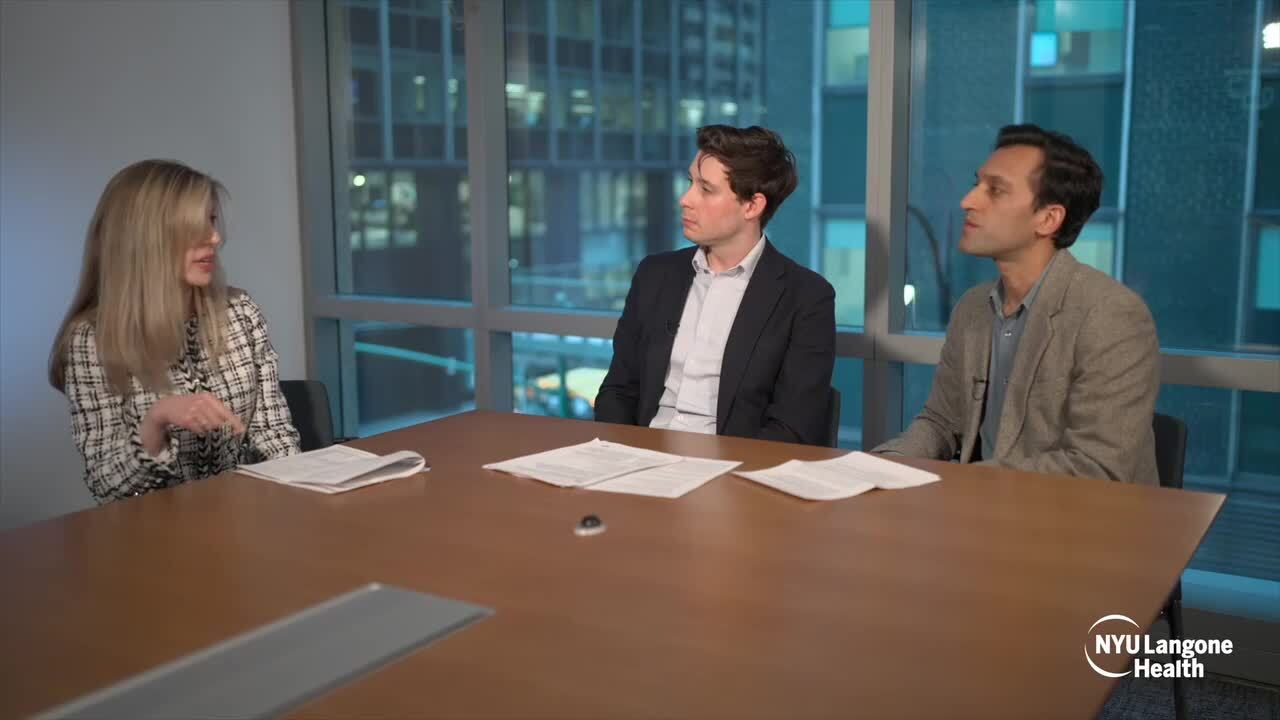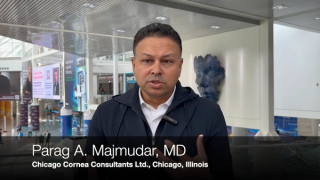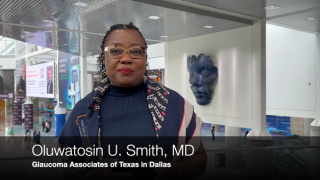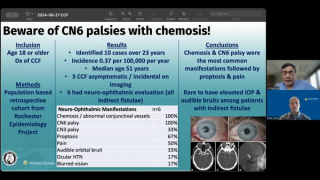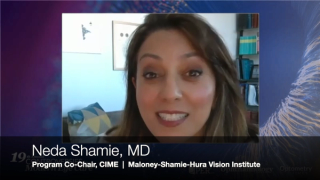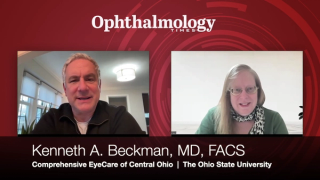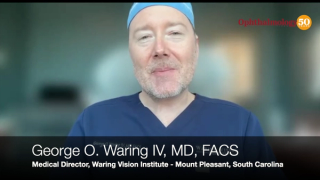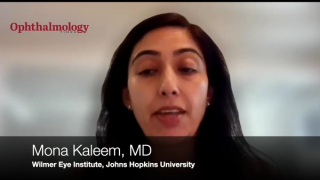
Clinical Diagnosis
Latest News
Latest Videos

CME Content
More News

Ophthalmologists reflect on the transformative impact of COVID-19, highlighting adaptations in patient care, safety protocols, and the rise of telemedicine.

Five years after the COVID-19 pandemic shutdown reshaped how the world gathers, here's how some of ophthalmology’s leading associations are still applying lessons forged in crisis


Personalizing treatment options and setting realistic expectations are crucial.

Compensation techniques in swept-source optical coherence tomography angiography improve accuracy by correcting signal loss from drusen and other artifacts

Researchers introduce a multistage dual-branch network to improve accuracy and efficiency

The novel corrective eye drop can be prescribed through pharmacy partners BlinkRx or Medvantx
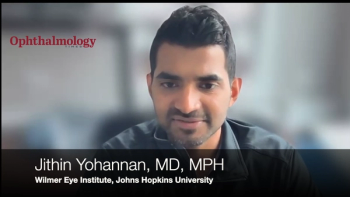
An AI model for target IOP prediction performs as well as glaucoma specialists, offering a promising tool to enhance glaucoma management, especially for nonspecialists.
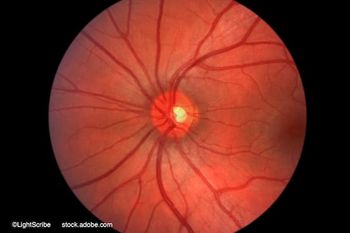
The retinal implant delivers continuous neurotrophic support, potentially halting disease progression and paving the way for future treatments in neurodegenerative retinal disorders.

Insights shed light on what the approval means for providers and their patients affected by this neurodegenerative retinal disease

Ronne steps into leadership role as the ASO marks a historic milestone on International Women’s Day

To tackle systemic barriers to eye care, the organization is co-hosting an event titled “No Woman Left Behind – Advancing Eye Health Equity for Women and Girls” on Tuesday, March 11, 2025, at the 69th Commission on the Status of Women in New York.
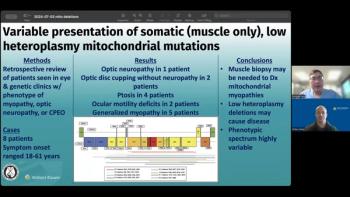
Andrew G. Lee, MD, and Drew Carey, MD, return for this latest episode of the "NeuroOp Guru" to discuss the variable presentations of somatic mitochondrial mutations and the importance of muscle biopsy in diagnosing low heteroplasmy in mitochondrial diseases.
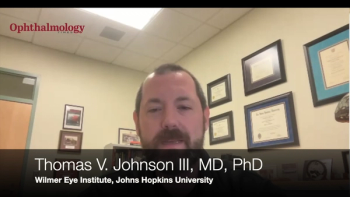
Clinician-scientists play a vital role in advancing ophthalmology by balancing patient care with research, leveraging clinical insights to drive impactful discoveries, and collaborating across disciplines to stay at the forefront of innovation.

These tools help fill a gap that current technologies cannot achieve as effectively.
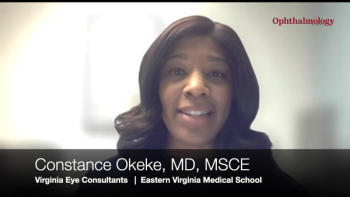
The research analyzed the 1-year outcomes of 132 eyes, evaluating mean IOP, baseline changes, medication reduction, and stratifying the results by race (African American vs Caucasian) and glaucoma severity (mild, moderate, severe).
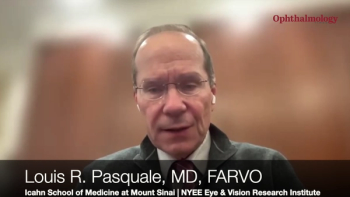
Emerging technologies, such as remote tonometry and genetic risk scoring, are revolutionizing glaucoma care by enabling earlier detection, personalized management, and more efficient use of resources.
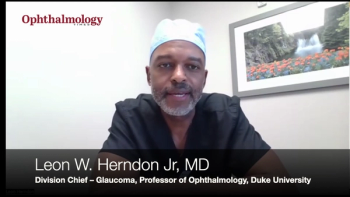
The procedure offers a renewed approach to suprachoroidal drainage, with potential for both combined and standalone glaucoma surgery.
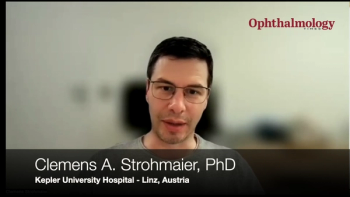
The Elios procedure increased aqueous humor outflow in all investigated eyes, but further studies are needed to correlate these improvements with its clinical efficacy.
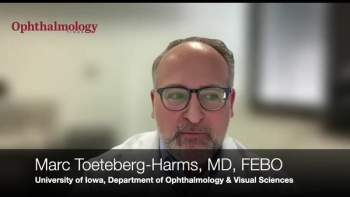
A systematic review and meta-analysis highlights the safety and efficacy of excimer laser trabeculostomy as an implant-free MIGS procedure for managing open-angle glaucoma and ocular hypertension, either alone or in combination with cataract surgery.

Incoming directors bring diverse expertise to help the ASO protect ophthalmic care and advocate for patients.

The state-of-the-art facility more than doubles the institute’s footprint, enhancing patient care, research, and education.

Direct selective laser trabeculoplasty enhances the experience for both patients and physicians, he notes, while also mitigating issues related to poor adherence and ocular surface disease from topical therapy.
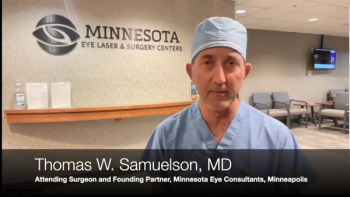
The focus in recent years has shifted to reducing the long-term burden of medical therapy, minimizing the risk of medication toxicity and persistent ocular surface disease.
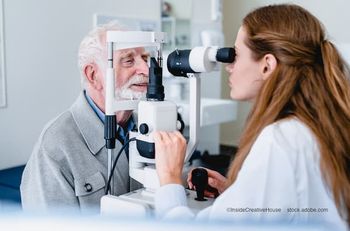
The new first-line laser treatment for glaucoma and ocular hypertension will be unveiled at the 2025 American Glaucoma Society annual meeting in Washington, DC, from February 26 to March 2.


